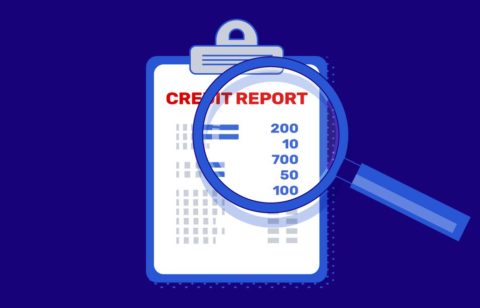Maintaining a healthy financial life starts with understanding what lenders see when they review your credit history. That information comes from your credit report, not your credit score.
Your credit report is a detailed record of your borrowing and repayment history, and you’re entitled to request a free copy each year from each of the three nationwide credit bureaus. Reviewing these reports regularly can help you spot errors, watch for signs of identity theft, and ensure your financial record is accurate.
Why You Have Three Credit Reports
When you request your free credit report, you’ll notice that there isn’t just one version. Instead, you have three separate reports, one from each of the nationwide credit bureaus: Equifax, Experian, and TransUnion.
Each bureau collects information from lenders, banks, and other businesses, but not all of them receive the same updates. For example, your credit card company might send data to one bureau but not the others. That means your reports may look slightly different depending on which one you’re reviewing.
A smart way to stay on top of your credit history is to check one report every four months instead of all three at once. This strategy spreads out your reviews across the year, making it easier to catch mistakes or suspicious activity early.
What’s Inside a Credit Report
While the layout can differ from bureau to bureau, each credit report contains the same types of information:
- Personal details: Your full name, Social Security number, date of birth, and current and past addresses.
- Credit accounts: Information about credit cards, mortgages, auto loans, and other accounts. You’ll see balances, payment history, and whether accounts are current or past due.
- Credit inquiries: A list of companies or lenders that have checked your report.
- Public records: Bankruptcies, foreclosures, or other legal judgments related to debt.
Taking time to read each section carefully can give you a clearer picture of your overall financial standing.
How to Check for Errors
Errors in your credit report are more common than many people realize. A Consumer Reports study found that half of the participants had errors on their credit reports, with more than one in four finding serious mistakes. Some of these errors can even affect loan terms. That’s why it’s important to check your information carefully.
Here’s what to look for:
- Personal information mistakes: Misspelled names, wrong addresses, or inaccurate Social Security numbers. These could be clerical errors—or signs of identity theft.
- Duplicate accounts: The same loan or credit card listed more than once.
- Incorrect balances or limits: A card showing the wrong credit limit or balance.
- Accounts you don’t recognize: These could point to fraud or reporting errors.
- Delinquency errors: Accounts marked as late or past due when you’ve paid on time.
Flag anything that looks suspicious or inaccurate. Keeping notes will make it easier if you need to file a dispute later.
What to Do if You Find a Mistake
If you spot an error, federal law gives you the right to dispute it. The process is straightforward:
- Gather evidence: Collect account statements, payment records, or other documents that show the mistake.
- Submit a dispute to the bureau: Write a letter or file an online dispute with the credit bureau that issued the report. Include your name, contact information, the account in question, and why the information is wrong.
- Notify the lender or creditor and reporting company: They’re required to review your claim.
- Keep records: Send letters by certified mail if possible, and keep copies of everything you submit.
The credit bureau must investigate and respond, usually within 30 days. If the lender confirms the mistake, the bureau has to correct it. If the dispute isn’t resolved, you can ask for a note to be added to your report explaining the situation.
Tips for Ongoing Monitoring
Checking your credit report once a year is a good start, but building a routine makes it more effective. Try these habits:
- Save copies: Keep digital or printed copies of past reports. Comparing them over time makes it easier to spot changes.
- Watch for fraud: Unfamiliar accounts or addresses could be early warnings of identity theft. Reviewing regularly gives you a chance to act quickly if something looks wrong.
- Set reminders: Schedule a recurring calendar reminder (for example, every three or four months) to check one bureau at a time so you’re monitoring year-round without feeling overwhelmed.
- Freeze or lock your credit: If you’re not planning to apply for new credit, freezing your credit reports can help prevent identity thieves from opening new accounts in your name.
Final Thoughts
Your credit report is an important record of your financial history, and mistakes can happen. By checking it regularly, verifying the information, and disputing errors when necessary, you can help protect yourself from reporting problems and even potential fraud. Making this a habit ensures you know what lenders see and gives you peace of mind that your financial record is accurate.







